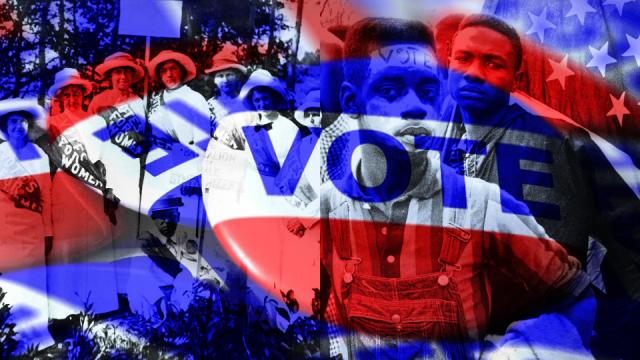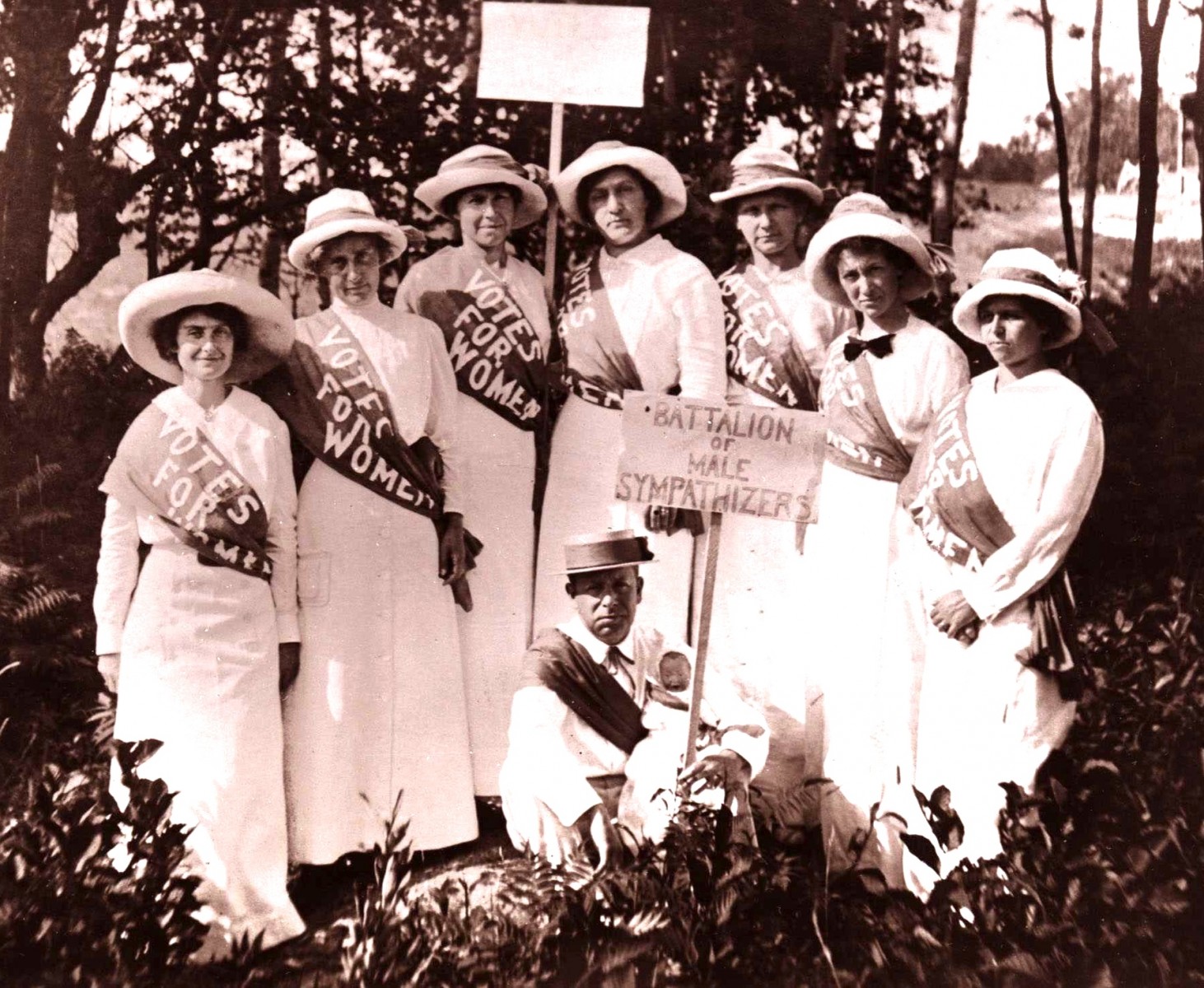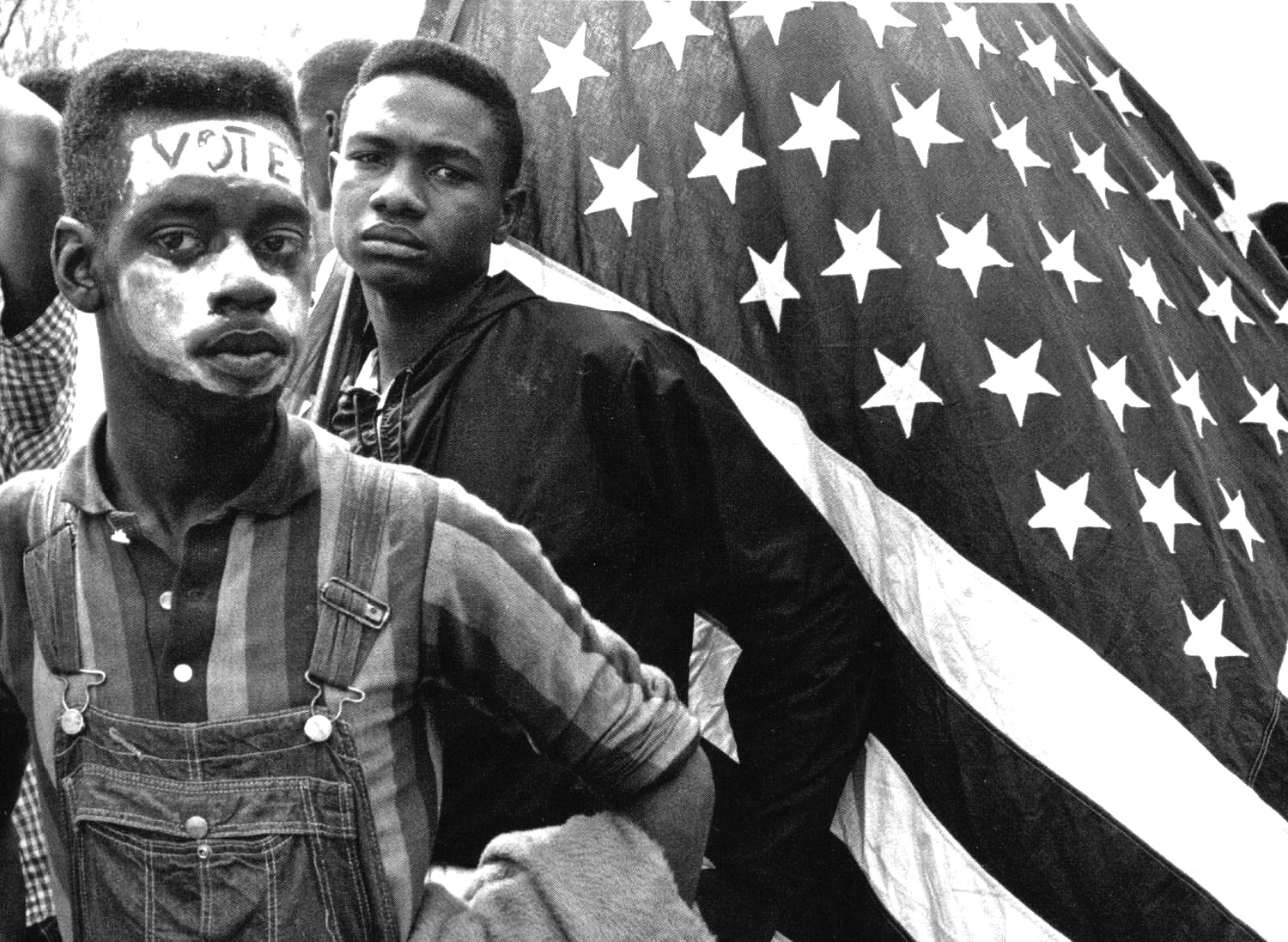
Many people are surprised to learn that the U.S. Constitution contains no affirmative right to vote. Yet voting seems to most people to be the most obvious, important vehicle they have to participate in this government that belongs to them. That is why the Constitution, which at once defines the structure of our government and codifies many of our rights, must guarantee our right to vote.
Article I, Section 4, paragraph 1 of the Constitution provides: “The Times, Places and Manner of holding Elections for Senators and Representatives, shall be prescribed in each State by the Legislature thereof; but the Congress may at any time by Law make or alter such Regulations, except as to the Places of chusing Senators.”
Thus, the Constitution mostly leaves the issue of voting to the States while giving Congress the power to regulate if it sees fit. But taking a trip through amended Constitutional history, we see how many times Americans amended our founding document to prohibit various forms of discrimination in voting rights – more amendments, in fact, than for any other purpose:
Amendment 14, Section 2 provides that if any state denies the right to vote to any of its men over age 21, that state will lose a part of its representation in the House of Representatives in proportion to the percentage of its population so denied. This was a device Congress adopted immediately after the Civil War in the hopes of dissuading the former Confederate states from preventing their freed slaves from voting. The amendment was a miserable failure, as leaders of the former Confederacy were so eager to prevent the freed slaves from voting that they just took the hit on their Congressional representation. This fact led to:
Amendment 15. This Amendment just states flatly that “The right of citizens of the United States to vote shall not be denied or abridged by the United States or by any State on account of race, color, or previous condition of servitude.” It also gives Congress the power to enforce it, which would later prove controversial.
Amendment 19 – the Women's Suffrage Amendment, as contemporaries called it – reads: “The right of citizens of the United States to vote shall not be denied or abridged by the United States or by any State on account of sex.”
Amendment 23 does not pertain directly to voting, but it gives votes to the District of Columbia in the Electoral College, which chooses the President. Thus it is related to elections.
Amendment 24 prohibits the requirement of having paid a poll tax as a condition of voting. A poll tax is any tax the jurisdiction imposes on individuals as individuals, often with the purpose of regulation more than generating revenue. States in the former Confederacy often required payment of a poll tax in cash in order to vote, which seems unremarkable to us; but in the late 19th century, many African Americans and poor whites who worked as sharecroppers operated on lines of credit with stores and had virtually zero cash income, making it impossible for them to pay the tax.
Amendment 26 provides, “The right of citizens of the United States, who are eighteen years of age or older, to vote shall not be denied or abridged by the United States or by any State on account of age.” The Republic adopted this amendment during the Vietnam War on the logic that anyone who was old enough to serve in the military and fight for his country should also be able to participate in choosing the officials who would make the decision for going to war.
Revisiting the 15th
The language of the Fifteenth Amendment, prohibiting the denial or abridgement of the right to vote on the basis of “race, color, or previous condition of servitude,” seems pretty clear to most of us. It is, however, an object lesson in the fact that a law is only as good as its enforcement.
At the time of its adoption, appetite in the North for continued occupation of the former Confederacy – a necessity for protecting the rights of freed slaves – was already waning. After the Compromise of 1877 resulted in the withdrawal of the last U.S. troops from the former Confederacy, Southern states began to enact various statutes that had the express purpose of limiting the rights of African Americans, including their right to vote.
In 1896, the Supreme Court endorsed the concept, if not explicitly voting discrimination, with its opinion in Plessy v. Ferguson – the notorious decision which held that separate facilities for blacks and whites were acceptable so long as they were "equal."
That ruling, and interpretation of discrimination, stayed until the 1960s. Then, in 1964, a combination of relentless pressure by African American civil rights activists and the political skills of Lyndon Johnson combined to produce the Civil Rights Act, which prohibited numerous forms of discrimination on the basis of race.
A statutory prohibition of voting discrimination on the basis of race came in 1965 with the Voting Rights Act. The VRA was a dramatic expansion of federal power that only applied to certain states, determined by a discernible past practice of discrimination in voting rights. It provided for federal registrars to enroll voters, thus eliminating the formal and informal mechanisms that white supremacists used to prevent African Americans from registering to vote.
It also required the states where it applied to submit any proposed changes in their registration and voting procedures to the federal government for “preclearance.” The Supreme Court upheld these provisions in 1966, noting that the exceptional conditions of racial discrimination in the affected states justified exceptional remedies.
The VRA transformed politics in the South. Suddenly, large numbers of African Americans could and did vote. The legislature of every Southern state instantly had African American members for the first time since the end of Reconstruction in 1877. African Americans also elected their own to Congress.
The original VRA, by its own terms, would only remain effective for five years. Congress reauthorized it repeatedly afterward, however – most recently in 2006, for a period of 25 years. Two parts of the law have proven most contentious: the section identifying practices it prohibits and the section setting the formula by which the federal government will apply its provisions, which were still largely the same in 2006 as they had been in 1965.
But this point proved to be that section’s undoing. In a highly disputed decision in 2013, the Supreme Court found that the criteria for deciding which parts of the country the Act would apply to is now anachronistic. They pointed to data showing that in many covered jurisdictions, the percentage of African Americans registered to vote is slightly higher than the percentage of whites, and in some other areas it is only a few points lower.
They also cited that the number of African Americans in elected offices has increased by 1,000 percent (a reflection of how few African American officials there were at the beginning).
America's highest court thus struck down the portion of the VRA setting the formula for what geographic areas the Act would apply to. The opinion expressly states that Congress may come up with an updated coverage formula that is more consistent with current conditions.
Virtually the entire Civil Rights establishment reacted in horror to the decision. Former Supreme Court Justice John Paul Stevens took the unusual step of including criticism of the decision in a review he published in The New York Review of Books. Attorney General Eric Holder, the defendant in the case and the individual with ultimate responsibility for enforcing the Act, said he was “deeply disappointed” with the decision.
Just because African Americans have made progress in the former Confederacy, they remain a minority of the population and the impulse to discriminate has by no means disappeared. In his remarks, Holder also pointed to a new form of discrimination that is similar to the original form the Act prohibits, but which has become increasingly significant since then: discrimination against Hispanic voters in the Southwest.
As the old saying goes, eternal vigilance is the price of liberty – which is why we must remain eternally vigilant to ensure that systematic voting discrimination against African Americans does not resurface.
3 WAYS TO SHOW YOUR SUPPORT
- Log in to post comments















